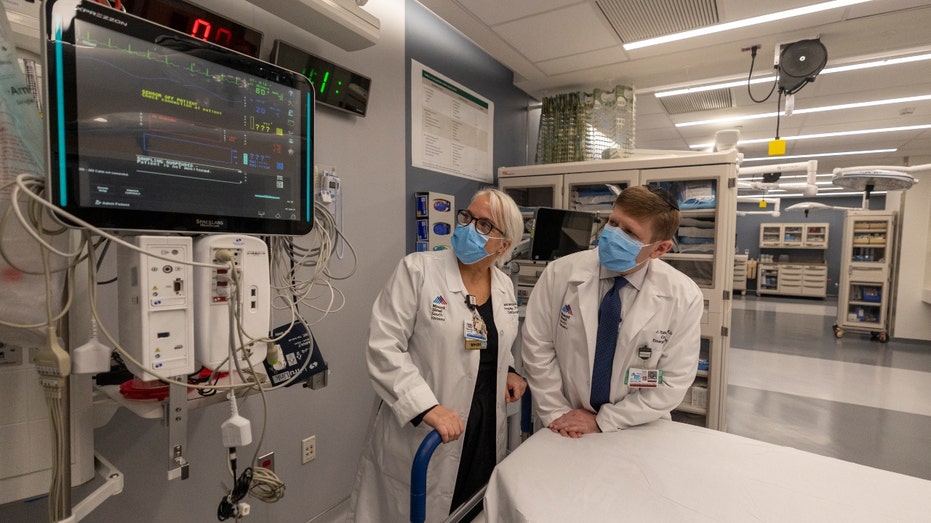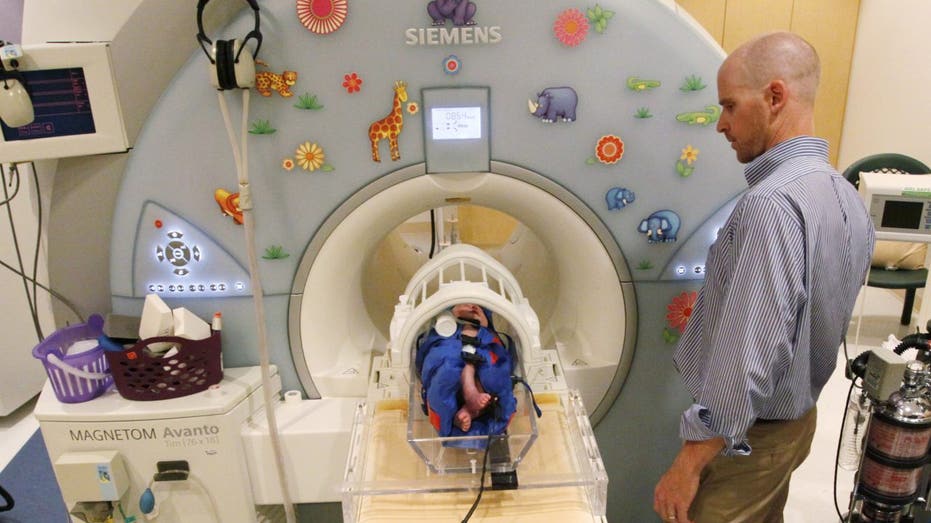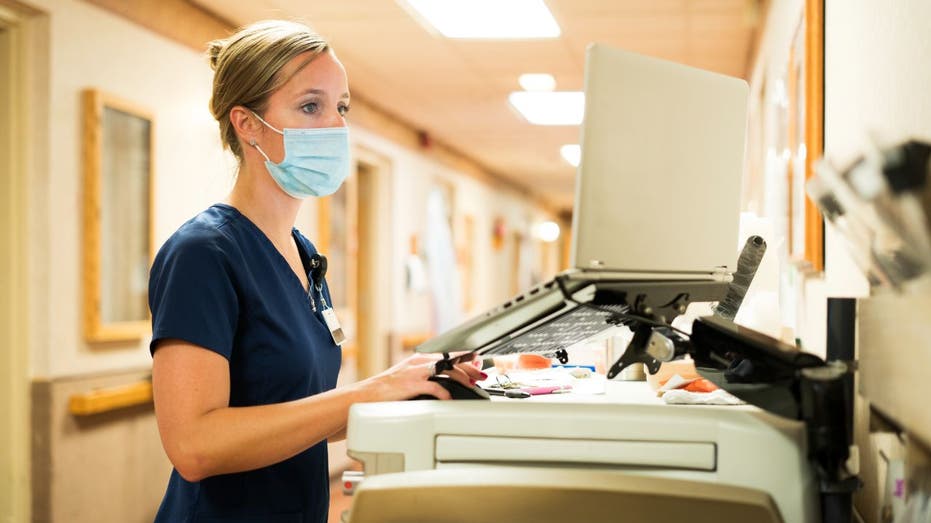Medical-device makers gain amid return to normalcy
Stryker, Edwards Lifesciences and Boston Scientific beat broader healthcare sector as procedure volumes rebound and costs stabilize
UnitedHealth Group is a buy with a lot of upside: Elizabeth Evans
Evans May Wealth managing partner Elizabeth Evans provides insight on ETFs and key names to watch on 'Making Money.'
Medical-device makers’ stocks are basking in the good times.
That is a marked shift from the turbulence of recent years, when device makers contended with inflationary pressures and a drop in medical procedures as hospitals faced staffing shortages and many patients deferred surgery during the pandemic. While the industry was far from the only sector to be affected by Covid-19, it suffered more than large-cap healthcare peers such as drugmakers and insurers. Those industries were relatively immune to the pandemic’s economic shocks, with insurers actually benefiting from a decline in surgical procedures.
Now, that picture is starting to reverse, and device makers are looking more resilient than their healthcare counterparts. Not only have cost pressures such as parts shortages started to abate, but procedure volumes are rebounding as Covid-19 restrictions loosen worldwide. And while pharma and insurers continue to face political pressure in Washington, device makers are relatively insulated from policy risk, says Asad Haider, a senior healthcare strategist at Goldman Sachs.

Dr. Jay Itzkowitz, head of the emergency department, and Margaret Puya RN, in the new Trauma Unit at Mount Sinai South Nassau hospital in Oceanside, New York on Jan. 26, 2023. ((Photo by Hoard Schnapp/Newsday RM via Getty Images) / Getty Images)
MODERNA'S FLU SHOT FACES SETBACK, SHARES FALL
Shares of Boston Scientific, Edwards Lifesciences and Stryker are all up around 10% or more so far this year. The iShares U.S. Medical Devices ETF is up 3.8% this year, compared with a less than 1% gain for the NYSE Arca Pharmaceutical Index and a 2.1% decline for the iShares U.S. Healthcare Providers ETF.
| Ticker | Security | Last | Change | Change % |
|---|---|---|---|---|
| BSX | BOSTON SCIENTIFIC CORP. | 76.26 | -1.37 | -1.76% |
| EW | EDWARDS LIFESCIENCES CORP. | 78.67 | +0.59 | +0.76% |
| SYK | STRYKER CORP. | 358.29 | -4.13 | -1.14% |
| IHI | ISHARES TRUST DOW JONES US MEDICAL DEVICE | 58.36 | +0.43 | +0.74% |
"These stocks have become expressions of improving procedure volumes and cost pressures not getting any worse," says Mr. Haider. He added that some companies, such as Boston Scientific, are also benefiting from a new product cycle. One example of a growth area for Boston Scientific as well as competitors such as Medtronic is a technology known as pulsed-field ablation, a new method for treating irregular heart rhythm conditions that could help minimize complications. JPMorgan estimates the broad electrophysiology market to be worth $8 billion in annual sales.
DEADLY FUNGUS AND COMPANIES WITH POTENTIAL TREATMENT
| Ticker | Security | Last | Change | Change % |
|---|---|---|---|---|
| MDT | MEDTRONIC PLC | 102.90 | -0.05 | -0.05% |
Many of the top large-cap device makers reported relatively rosy fourth-quarter earnings while issuing 2023 guidance that was above analyst expectations. First-quarter earnings reports are expected to continue showing a healthy return to normal as hospital procedures bounce back.

Michael Grabinski, two weeks old is slid into a MRI machine Dr. David Brumbaugh at The Children's Hospital in Aurora, Colorado, on Aug. 23, 2010, during a research study on obesity in infants. (Reuters/Rick Wilking)
The first quarter will also make for an easy comparison. At around the same time last year, the Omicron variant negatively affected growth because it limited hospital capacity and procedure volumes. The expected beats this quarter could lead some companies to raise full-year guidance earlier than normal, writes JPMorgan analyst Robbie Marcus.
"While normally we don’t see many MedTech companies raise full-year guidance after 1Q, we think most will be hard pressed not to raise by at least the 1Q beat if they deliver the results we are expecting," Mr. Marcus says.
CLICK HERE TO GET THE FOX BUSINESS APP
A big caveat is that industry names are expensive, with investor favorites such as Boston Scientific and Stryker trading at more than 25 times forward earnings. But Jared Holz, a healthcare-equity strategist at Mizuho, says strong revenue growth means the high multiples shouldn’t be big deterrents for investors.
"We would argue both could post in-line quarters or even miss by a tad and few investors would be compelled to sell or alter their respective views," he writes.

A registered nurse documents medicine provided to a patient into a laptop computer at the nursing station at a hospital in Indiana. (iStock / iStock)
A miss across the board doesn’t seem likely anyway. A recent Needham analysis of Google search trends revealed that searches in the U.S. for 20 elective medical procedures were at 115% of pre-Covid levels. Additionally, a Raymond James note citing KaufmanHall data recently pointed to a 7% increase in operating-room minutes in February compared with last year. In addition, the use of anesthesia for procedural sedation was up 4.6%, which analyst John Ransom noted was the first increase since June 2022. Investors will also be paying close attention when industry behemoth UnitedHealth Group reports first-quarter earnings before the bell on Friday. The company’s remarks on procedure volumes can move the shares of medical-device makers as well as hospitals.
| Ticker | Security | Last | Change | Change % |
|---|---|---|---|---|
| UNH | UNITEDHEALTH GROUP INC. | 276.59 | +8.15 | +3.04% |
Medical-device makers are still working through some of the aftershocks of the pandemic, including persistent inflation in things such as costlier electronic components. But as long as business increasingly feels like the pre-Covid normal, investors are likely to remain positive on the sector.




















